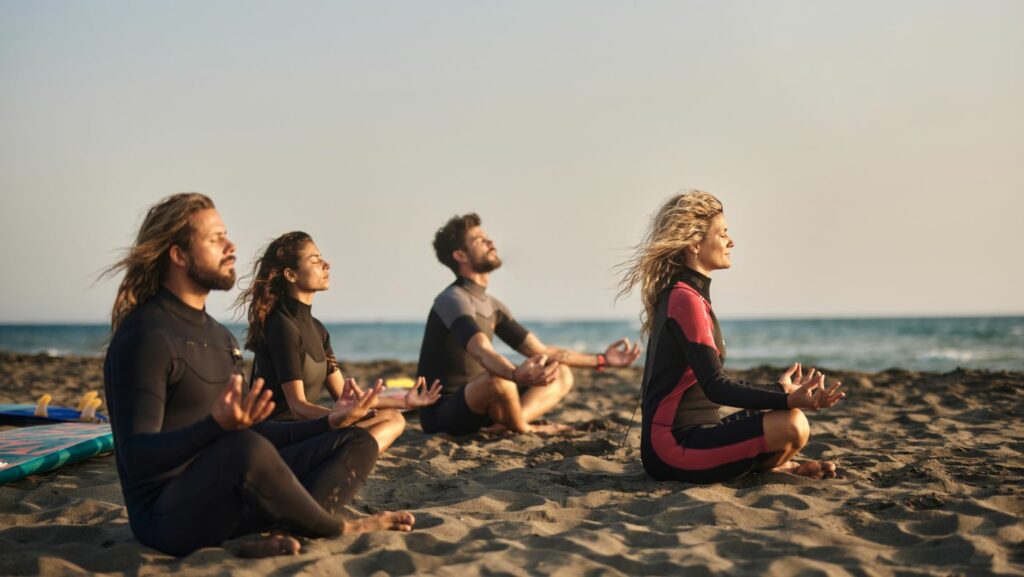In an age where consumerism is akin to a ceaseless wave, crashing upon the shores of our daily existence, the teachings of the Bahá’í Faith offer a profound surfboard of spiritual resilience. Navigating through the tumultuous waters of worldly desires, individuals are called upon to discover not merely a method of survival but an artful balance of spiritual and material existence. Within this framework, one can glean essential insights into the nature of consumer culture and the broader implications it has on our spiritual well-being.
The first teaching revolves around the principle of moderation. Intrinsically linked to the Bahá’í injunctions against extravagance, moderation serves as a fundamental bulwark against the excesses of consumerism. The metaphor of surfing becomes particularly resonant; just as surfers must master the delicate equilibrium of riding a wave, individuals must learn to harmonize their material pursuits with their higher spiritual aspirations. This is not to suggest an abandonment of material goods—on the contrary, Bahá’í teachings advocate for the responsible use of resources to enhance communal well-being. The critical component lies in recognizing the impermanence of material possessions and the enduring significance of spiritual growth.
As the currents of advertisement close in, it becomes essential to foster an acute awareness. The Bahá’í Faith emphasizes the necessity of perception—seeing beyond the superficial glitz and glamour that consumer culture offers. Developing this critical lens can serve as an anchor amidst the shifting tides of social pressure and worldly temptation. By cultivating an attitude of discernment, one can bypass the allure of fleeting pleasures and gravitate towards that which nourishes the soul. This introspection aligns with the teachings that encourage individuals to assess their true needs versus their perceived wants, creating space for spiritual nurturing.
Another salient teaching is the concept of unity and collective responsibility. In a world often fragmented by competition and individualism, Bahá’í principles advocate for a sense of interconnectedness not just within familial or local contexts, but also on a global scale. This perspective reframes consumerism into a collective endeavor, encouraging communal engagement and shared prosperity. Sink or swim becomes a collective journey, where the health of one directly impacts the welfare of all. As such, one’s purchasing decisions can embody an ethical stance that supports fair trade, sustainable practices, and equitable labor conditions, thus aligning worldly actions with higher ethical imperatives.
Furthermore, an examination of the respect for the environment emerges from the Bahá’í teachings, urging individuals to recognize their role as stewards of the Earth. In contrast to rampant consumerism which often prioritizes short-term gratification over long-term sustainability, the faith emphasizes an environmental ethics that corresponds with the idea of responsible consumerism. As humanity operates within the delicate web of life, the imperative to tread softly upon the Earth stands as a testament to spiritual values. Embracing eco-conscious practices can be seen as an extension of one’s commitment to both individual spiritual health and communal welfare.
The metaphor of surfing transcends mere physicality; it becomes a lens through which spiritual concepts materialize. Each wave presents an opportunity for growth, resilience, and reflection. Equally, in facing the waves of consumerism, individuals must harness their intuition, honing their ability to discern powerful undercurrents that may threaten their inner peace. Part of this discernment encompasses understanding the cycles of desire—an endless pursuit that often leads only to dissatisfaction. Bahá’í teachings guide individuals in navigating these currents, ultimately steering them towards a profound recognition of what truly sustains fulfillment.
Additionally, the principle of continuous education and personal development holds significant relevance. It is through education that individuals cultivate the skills necessary to ride the waves of change effectively. The Bahá’í Faith emphasizes the transformative power of knowledge, proposing that an informed individual can more accurately navigate the complexities of consumer culture. As practitioners delve deeper into the realms of their faith, they glean wisdom that informs not only their choices but also their capabilities to influence their communities positively. Knowledge, thus, becomes a potent surfboard, propelling one safely through the roiling tides of fleeting materialism.
In conclusion, surfing the consumerism wave necessitates a spiritual balance in a material world, as illuminated by the Bahá’í teachings. The art of moderation, perceptive discernment, unity and responsibility, environmental stewardship, and the pursuit of knowledge combine to create a holistic approach to navigating contemporary consumer culture. The metaphor of surfing encapsulates the dynamic interplay between spiritual fortitude and material existence, inviting individuals toward a richer understanding of their place within the cosmos. As more people embrace these teachings, the waves of consumerism, once overwhelming, become merely a part of the journey towards inner peace, balance, and collective elevation.
